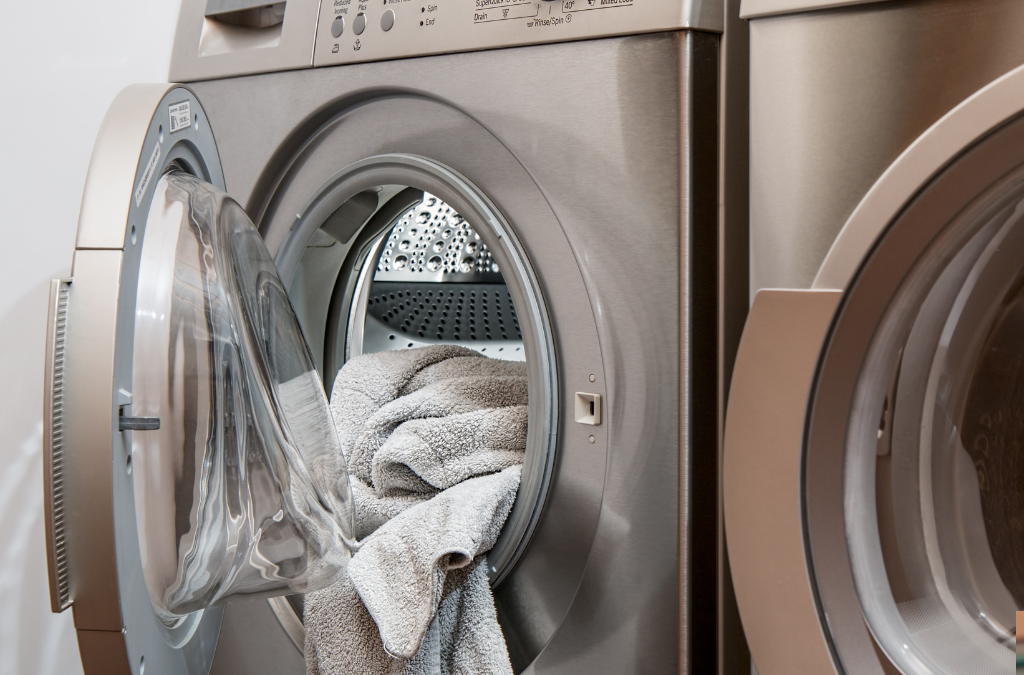A smelly washer can turn laundry day into an unpleasant chore, leaving your clothes with less-than-fresh results. While many washer odors are caused by simple maintenance issues, some may require more advanced attention. For complex problems, professional appliance repair services may be necessary to diagnose and resolve underlying mechanical issues. However, with the right care and preventative measures, you can eliminate odors and keep your washer fresh and functional.
Common Causes of a Smelly Washer
- Detergent Residue Using too much detergent or non-HE (high-efficiency) detergents can leave behind a soapy buildup inside your washer. This residue creates a breeding ground for bacteria and mold, both of which contribute to unpleasant odors.
- Trapped Moisture Washers, particularly front-load models, often trap moisture in door seals, hoses, and detergent dispensers. If left damp, these areas can develop mildew, which leads to bad smells.
- Dirty Washer Drum Over time, dirt, lint, and detergent residue accumulate inside the drum. If not cleaned regularly, these deposits can emit foul odors.
- Clogged Drainage System A washer’s drainage system can become clogged or slow-draining, trapping dirty water inside the machine. This standing water is a common cause of musty odors that linger even after a wash cycle.
- Forgotten Laundry Leaving wet clothes inside the washer for an extended period creates a perfect environment for bacteria to grow, resulting in unpleasant smells.
How to Get Rid of Washer Odors
- Clean the Washer Drum Use a washer cleaning cycle or run a hot wash with a mixture of white vinegar and baking soda. This helps to break down residue and neutralize odors.
- Wipe Down Door Seals Moisture often gets trapped in the rubber gaskets of front-load washers. Use a damp cloth and a mild disinfectant to clean these areas regularly.
- Use the Right Detergent Switch to HE detergents and follow the manufacturer’s recommendations for the correct amount. Avoid overloading on detergent, as excess amounts often leave residue behind.
- Keep the Washer Dry After each use, leave the washer door slightly open to allow air circulation. Wipe down the drum, seals, and detergent dispensers to remove any remaining moisture.
- Clean the Drain Filter If your washer has a drain filter, remove and clean it regularly. This helps prevent clogs and ensures dirty water drains properly.
How to Prevent Washer Odors
Taking a few proactive steps can help you avoid washer odors altogether:
- Run Monthly Cleaning Cycles Use a washer cleaner or a DIY mix of vinegar and baking soda at least once a month to keep your drum fresh.
- Wipe After Every Use Always dry the washer drum, door seals, and dispensers after completing your laundry to prevent moisture buildup.
- Avoid Overloading Overloading the washer can prevent water and detergent from circulating effectively, leading to residue buildup.
- Choose Quality Detergents Select high-efficiency (HE) detergents designed for your washer model and avoid using too much detergent in each load.
- Check the Drainage System Inspect the drainage system periodically for clogs or slow drainage. Clear any blockages to ensure water flows freely.
When to Seek Professional Help
If your washer continues to smell bad despite regular cleaning and maintenance, the issue may lie in hidden components such as internal hoses, the drainage system, or hard-to-reach mold growth. In such cases, consider consulting a professional washer repair service to diagnose and resolve the problem. Professionals can help identify and fix mechanical issues, ensuring your washer operates efficiently and odor-free.
Final Thoughts
A smelly washer doesn’t have to be a permanent problem. By addressing common causes, adopting good maintenance habits, and seeking professional help when necessary, you can enjoy fresh, clean laundry every time. Regular cleaning, proper detergent use, and consistent drying are key to keeping odors at bay.

Recent Comments